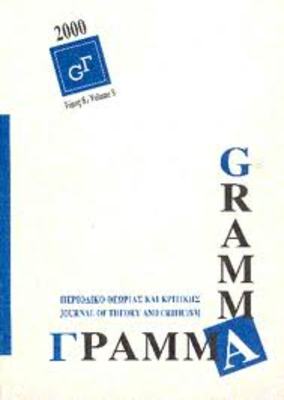A postdramatic composer in search of a dramatic aesthetic, or, the apotheosis and decline of Andrew Lloyd Webber
Part of : Γράμμα : περιοδικό θεωρίας και κριτικής ; Vol.17, No.1, 2009, pages 145-162
Issue:
Pages:
145-162
Section Title:
Word and spectacle: new configurations
Author:
Abstract:
Andrew Lloyd Webber has been associated with a type of musical theater that disregards the conventions of the character-driven musical play, offering, instead, a stream of impressive and loosely connected aural and visual images. His compositional method could be easily described as "postdramatic," prioritizing the audiovisual intensity of the Individual dramatic moment, rather than its insertion into a coherent narrative structure. However, a closer reading of Lloyd Webber's musico-dramatic texts can reveal the composer's consistent effort to develop a more traditionally dramatic musical aesthetic. This experimentation with more dramatic models of musical composition produced Lloyd Webber's biggest commercial triumph, 77 te Phantom of the Opera, but can also be considered responsible for his subsequent demise. The present paper will try to trace these developments in Lloyd Webber's compositional method, offering, at the same time, a sociological reading of his aesthetic that explains the reasons for the composer's vast popularity in postmodern culture as well as the reasons for his decline.
Subject:
Subject (LC):
Notes:
Περιέχει βιβλιογραφία.The text strikes back: the dynamics of performativity




